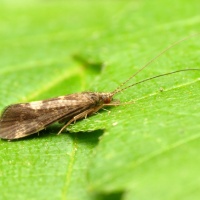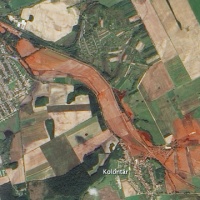Act now to mitigate climate change impacts on aquatic ecosystems, scientists urge

The effects of climate change will cause severe environmental and humanitarian crises in years to come unless globally-concerted climate actions are urgently implemented, according to a coalition of over 100 aquatic science societies. The effects of climate change are particularly severe in marine and freshwater ecosystems, the scientists say, potentially causing significant losses in aquatic biodiversity, fisheries and human livelihoods, unless effective mitigation actions are taken.
In a statement recently published on the American Fisheries Society website, the coalition representing more than 80,000 global scientists state, “It is time to acknowledge the urgent need to act to address climate change. Delaying action to control greenhouse gas emissions is not an option if humankind wishes to conserve the aquatic resources and environmental safety of the world.”
The statement synthesises cutting-edge scientific research into succinct diagnoses of contemporary aquatic conservation issues. As readers of this blog will likely know all too well freshwaters are among the most threatened ecosystems on Earth, covering less than 1% of the planet, but supporting one-third of all vertebrate species and 10% of all species.
Climate change is already causing significant environmental impacts on freshwaters, and predictions suggest many of these will increase in severity in the future. These impacts are wide-ranging: altered ecological food webs, increased frequency and intensity of droughts, invasive species, shifting climatic niches of many plants and animals, reductions in wetland capacity to store carbon, and increased incidences of algal blooms, amongst many others. These are only a few common issues, and, as contemporary research on multiple stressors in freshwaters tells us, the stresses they place on ecosystems can interact to intensify their individual impacts.
The scientists’ statement emphasises that mitigating climate change impacts is crucial, not only for conserving freshwater ecosystems themselves, but also in supporting human livelihoods which depend on the many services freshwaters provide. Key issues here include the provision of fisheries, drinking and cleaning water, tourism, carbon sequestration and natural flood protection.
2021 is an important year for global climate action. In November, world leaders will meet in Glasgow for the successor to the landmark 2015 UN Climate Change Conference in Paris. Where the Paris agreement brought together most of the world’s nations to agree to tackle climate change for the first time, the 2021 Glasgow COP26 meeting offers the opportunity for nations to pledge to further cut their carbon emissions. Indeed, pledges to reach net-zero carbon emissions from China, Japan and South Korea are already nearing the Paris 2015 targets.
The scientists’ statement is intended to offer a voice for aquatic life in these debates, emphasising that freshwater and marine ecosystems are not only at risk from ongoing climate change, but that their natural functioning provides numerous climate mitigation and human livelihood benefits to society. They call for, “Governments, the public, industry, academia, and all other sectors of society [to] prioritize actions and act in a concerted way to halt human-caused climate change if they are to prevent dire consequences.”
+++
Read the statement in full on the American Fisheries Society website here.















Comments are closed.